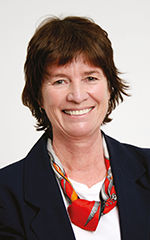

Spring is here, holidays are getting closer and there’s a new energy in the air. With this in mind, in this issue we cover the very important topic of ECSA registration. SAIMC’s COO, Gerhard Greeff, explains what the process is, the implications and why it matters. He also covers a significant new development, the recognition of two new disciplines within engineering, Mechatronics and Computer Engineering, which are opening up a whole new world of possibilities. As he says: “Whether you are an engineer, technologist or technician, registration with ECSA is not merely a formality. It is a professional milestone that affirms your competence, enhances your credibility and aligns you with both national and international standards of excellence.”
On the human side we have an inspiring contribution from Damian de Arruda, business unit manager at Afrilek, who describes his journey to becoming a professional engineer. In his words: “The path is challenging, but it will shape you into an engineer who builds a safer, more efficient and better future for us all.”
Our world is increasingly volatile, and the pressure on engineers today is huge. Global uncertainties such as geopolitical unrest, economic challenges, climate-related disasters and shifting social dynamics are now the norm. Engineers have to cope with containing costs, minimising downtime, maintaining product quality, keeping up with technology, complying with an increasing number of regulatory requirements, meeting tight deadlines in the face of resource constraints, keeping customers happy, making the workplace safe, and a whole lot more.
If that’s not enough, they are responsible for designing, building and maintaining the systems that support our society. A good example is a heartwarming story we have about RS South Africa’s initiative to help young engineers turn their ideas into social impact. Winners were selected for their ingenuity, empathy and ability to tackle pressing societal challenges, and they came up with a wonderful array of projects. They ranged from helping students with speech impairments to repurposing disposable vape batteries into power banks, to autonomous robots to assist disabled individuals, to a vision-based drone positioning system for GPS-denied environments that can deliver medicine to rural clinics and support disaster response. There is a new wave of young South African engineering students out there who are showing that innovation doesn’t only involve technology, it also includes empathy and solutions that support community needs.
When we talk about automation, it’s easy to fall into using technical language. Automation makes you think of machines, faster cycle times and robots that never take a break. It’s measured in percentages gained, throughput, fault tolerance, downtime avoided and energy saved. But there’s a new awareness that automation is not just “machines replacing jobs”, it’s people designing systems that solve human challenges.
Engineers are problem solvers. The problems are well defined, and nowadays they are about worker safety, product quality, environmental responsibility and meeting the demands of society in a sustainable way. Behind every robot arm, I/O module or advanced control algorithm, there is an engineer, or team of engineers, asking: “How do we make this job safer? How do we cut waste without cutting corners? How do we keep things running reliably so people on the ground can do their jobs with less stress?”
For example, safety systems are not developed just to comply with regulatory standards. Automated interlocks, machine guards, emergency-stop circuits and light curtains exist because workers were once injured on the job. If you look at efficiency, it saves money, but it also saves energy. It cuts down on waste sent to landfill. With fewer resources consumed and less energy burned, it reduces a factory’s footprint outside its gates. These are outcomes that benefit communities, not just balance sheets. Automation helps us produce more with less impact.
Another challenge is new technology. As systems grow more and more complex, automation engineers need to master new disciplines like controls, cybersecurity and data analytics, and as we saw above, mechatronics and computer engineering. Behind this technology is a new generation of adaptable young engineers trained to think across silos, and experienced engineers mentoring them. Automation doesn’t involve machines replacing humans, it’s engineers applying creativity and precision to design, manage and improve systems that support society. It gives people the tools to grow their capabilities and do more valuable work.
In our magazine we cover all sorts of sophisticated and exciting new technologies and developments, and I love it. But behind all this there is the human dimension. At the end of the day, automation involves engineers using creativity, persistence and precision to build systems that make life safer, cleaner and more sustainable. It’s technology in service of people.
| Tel: | +27 11 543 5800 |
| Email: | [email protected] |
| www: | www.technews.co.za |
| Articles: | More information and articles about Technews Publishing (SA Instrumentation & Control) |

© Technews Publishing (Pty) Ltd | All Rights Reserved